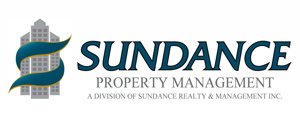
As an owner of a commercial property, you need to have a lease agreement that defines the terms and conditions of your relationship with your tenants.
A lease agreement is a legal contract that protects both parties from potential disputes and liabilities. However, negotiating and drafting a lease agreement can be a complex and challenging process, especially if you are not familiar with the legal jargon and clauses involved.
In this blog post, we will provide some tips and guidelines on how to negotiate and draft a lease agreement for your commercial property.
- Do your research. Before you enter any negotiations, you should do your homework and gather as much information as possible about the market conditions, the property, and the tenant. You should also consult with a lawyer or a real estate agent who can advise you on the legal and financial aspects of the lease. You should have a clear idea of what you want and what you can offer in terms of rent, security deposit, maintenance, utilities, insurance, duration, renewal options, subleasing, improvements, signage, parking, etc.
- Communicate effectively. Negotiating a lease agreement is a collaborative process that requires open and honest communication between both parties. You should be respectful, courteous, and professional in your interactions. You should also be clear, concise, and specific in your requests and proposals. You should avoid making unrealistic or unreasonable demands that could jeopardize the deal. You should also listen carefully to the other party’s concerns and interests and try to address them in a mutually beneficial way.
- Be flexible and creative. Negotiating a lease agreement is not a zero-sum game where one party wins and the other loses. It is a win-win situation where both parties can achieve their goals and satisfy their needs. Therefore, you should be willing to compromise and make concessions on some issues in exchange for getting what you want on others. You should also be open to exploring alternative solutions that could create value for both parties. For example, you could offer a longer lease term or more improvement allowances in exchange for a higher rent rate.
- Review and revise the draft. Once you have reached an agreement on the main terms of the lease, you should ask a lawyer, with commercial leasing experience, to prepare a draft of the lease agreement for your review. You should read the draft carefully and make sure that it reflects what you have agreed upon verbally. You should also check for any errors, omissions, ambiguities, or inconsistencies that could cause confusion or disputes later.
- Sign the lease agreement. After you have reviewed and revised the draft of the lease agreement, you are ready to sign it and finalize the deal. It may be advisable for each party to sign the lease agreement in front of a witness or a notary public who can verify identities and authenticity. You should keep a copy of the signed lease agreement for your records and reference.
Congratulations! You have successfully negotiated and drafted a lease agreement for your commercial property.
